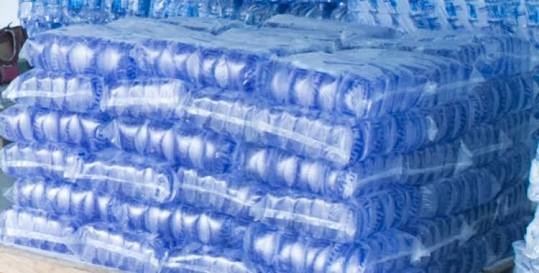
Large numbers of bottled, sachet water not wholesome
Large numbers of bottled and sachet drinking water available on the market have not been tested to ascertain whether they are good for human consumption or not.
The Head of the Environmental Chemistry and Sanitation Engineering Division of the Water Resources Institute (WRI), Dr Anthony Yaw Karikari, has, therefore, advised children to be conscious of the brand of water they consume.
Advertisement
That, he said, they could be done by checking for proper labelling and seal before they purchased bottled or sachet water and not consume those which did not have that.
Dr Karikari gave the advice in an interview with the Junior Graphic in Accra.
He said packaged water should have a stamp of the Food and Drugs Authority (FDA) before being sold on the market and advised children to be on the lookout.
Dr Karikari asked children not to buy water which had been tampered with or dripping.
He explained that many of the certified water producing companies had sold their franchise to other unknown companies because of high demand on the market. WRI could, therefore, not vouch for the wholesomeness of these products.
Dr Karikari asked children not to buy water (unfamiliar brand) from any unknown vendor in these times of COVID-19 and to ensure that water vendors they bought from were neatly dressed.
The head of Division explained that water had important nutrients, therefore, children should check if such had been spelt out clearly on the sachet before buying.
Some of these nutrients, he said, were calcium, sulphate, potassium which simply means checking the acidity or alkalinity of a substance should be in the range of 6.5 - 8.5 pH unit.
He told parents and guardians to only change brands of water to certified brands explaining that most of them had not gone through proper testing and could expose the children to infections.
Talking about sources of community water such as well water, spring water, rivers, lakes and ground water, Dr Karikari said it should be boiled (to kill microbial organism), sieved (with a white calico) and or treated with chlorine and alum or aluminum sulphate before consumption.
He indicated that water from other sources apart from pipe-borne water contained soil particles, bacteria, viruses and pathogens which were not visible and could be harmful to the body.
Dr Karikari said water should be kept at a cool dry place or in a refrigerator and not in the sun because chemicals could leak from the rubber into the water when it is placed directly under the sun.
“There is a distinction between Ghana Water Company Limited (GWCL) and the Water Research Institute (WRI)”, he said.
The WRI is a scientific research Institute that researches into water resources including the water quality before they are consumed while the GWCL is responsible for providing water utility service in Ghana,” he added.
Food and Drugs Authority is the regulatory body that ensures the wholesomeness of water before they certify it.
Likely effects of drinking untreated water.
. Cholera
. Dsentery
. Diarrhoea
. Stomach cramps
. Pneumonia




